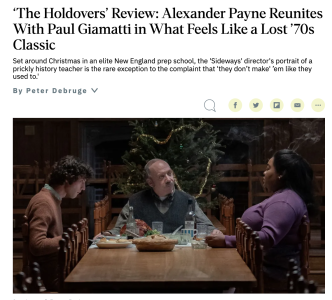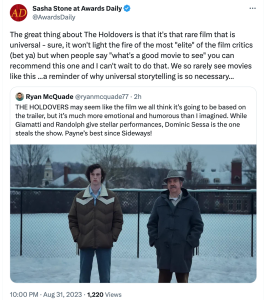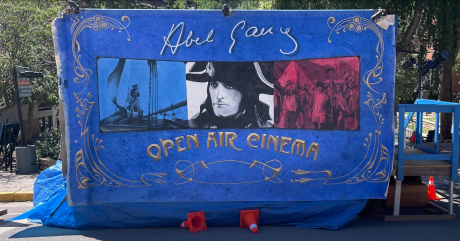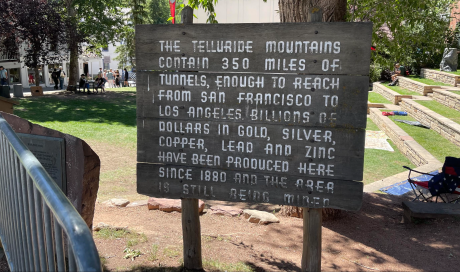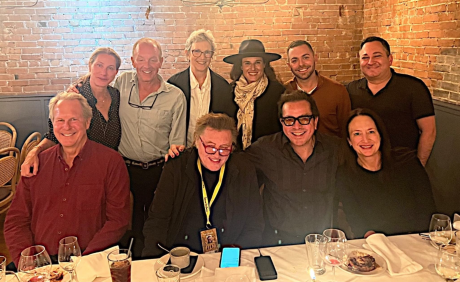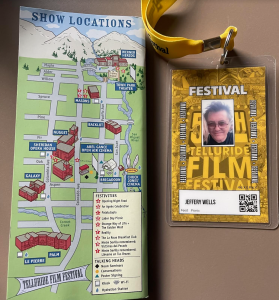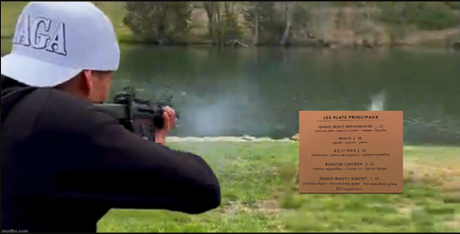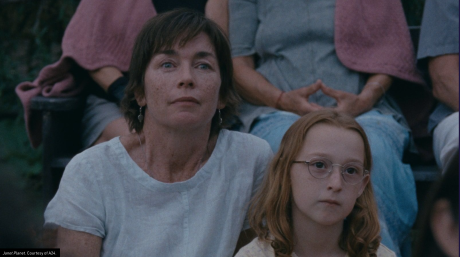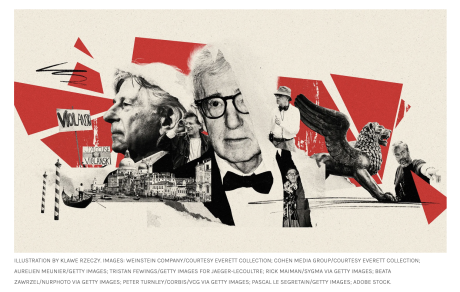“Then I awoke / Was this some kind of joke? / Much to my surprise / I opened my eyes” — from Bill Wyman‘s “In Another Land“, a track from “Their Satanic Majesties Request.”
Silly me for observing a plain fact over the past six or so years. What I’ve said repeatedly is that woke flavors, sympathies and constitutions have been a ticket to Oscar glory by way of the New Academy Kidz. Movies about ethnic, non-white or outside-the-usual-mainstream characters and subject matter and/or films made by women or non-Anglos…good to go.
In the Best Picture category alone the winners have fit this paradigm…(1) the middle-class Asian family meets a Marvel-esque nerd sensibility in Everything Everywhere All at Once, (2) the hearing-challenged family in CODA, (3) the homeless woman saga, directed by a female Asian (Chloe Zhao), that was Nomadland, and (4) Parasite, the lacerating social drama directed by a South Korean genre nerd (Bong Joon ho). Green Book‘s Best Picture triumph was an exception to this pattern (and was fiercely condemned by woke critics and columnists) but Moonlight (Black director-writer, focus on Black gay males) adhered to it.
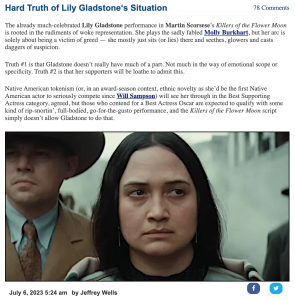
You can argue that all these Best Picture winners attained Oscar glory because they were simply very good or great films…you can claim that but as Quentin Tarantino would probably say, sell that bullshit to the tourists. Woke ideology has taken over, and everything is measured by this.
Yesterday morning (Thursday, 8.31) I was chatting with a couple of journo columnist acquaintances (i.e., not strictly critics) who, for political reasons or whatever, have seemingly bought into woke theology, or at least seem to have decided that siding with the wokesters is the safest way to go. The subject turned to Killers of the Flower Moon and my previously-stated view that Lily Gladstone, who plays the deceived and maligned Mollie Burkhart, will not only be Oscar-nominated but may win, partly for the quiet intensity of her performance but largely, be honest, because of her Native American heritage. Because a Native American has never won an acting Oscar before.
I opined that in terms of her actual performance Gladstone delivers sufficiently, although she isn’t allowed much in the way of emotional range and is given precious few lines. Mostly she stares a hole into the camera lens…quietly enraged, guilt-trippy, “God will get you,” etc.
Immediately upon saying that Gladstone’s ethnicity will be a significant factor in landing a nomination, one of the journos said this was “insulting” and that “I won’t have it…I won’t tolerate this.” He was essentially saying that my opinion was racist, although qualifying this with the fact that we’ve known each other for decades and that he likes me personally but this kind of talk (harumph) will not be allowed in his presence.


